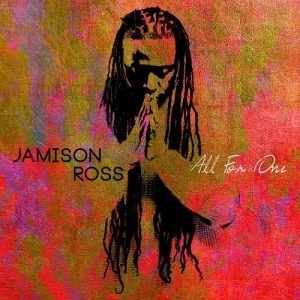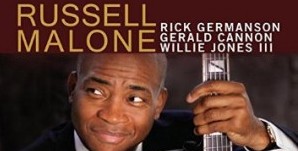Jamison Ross – All For One
 Drummer and vocalist Jamison Ross, winner of the 2012 Thelonious Monk International Jazz Competition, has released his sophomore album after his Grammy-nominated “Jamison” debut in 2015. The dozen tracks span the range from jazz to gospel, from r&b to soul and back. “All For One” starts with the feel-good New Orleans groove of Allen Toussaint‘s “A Mellow Good Time”, showcasing Jamison’s pretty versatile, powerful, funky voice. Half of the tracks on offer have been written or co-written by the leader and with “Unspoken”, written together with his guitarist Rick Lollar, he moves into the soul realms, with a phrasing not too dissimilar to that of Jordan Rakei. I just think his voice sometimes gets too throaty, like in the second part of the tune.
Drummer and vocalist Jamison Ross, winner of the 2012 Thelonious Monk International Jazz Competition, has released his sophomore album after his Grammy-nominated “Jamison” debut in 2015. The dozen tracks span the range from jazz to gospel, from r&b to soul and back. “All For One” starts with the feel-good New Orleans groove of Allen Toussaint‘s “A Mellow Good Time”, showcasing Jamison’s pretty versatile, powerful, funky voice. Half of the tracks on offer have been written or co-written by the leader and with “Unspoken”, written together with his guitarist Rick Lollar, he moves into the soul realms, with a phrasing not too dissimilar to that of Jordan Rakei. I just think his voice sometimes gets too throaty, like in the second part of the tune.
His version of “Don’t Go To Strangers” is extremely tender and soft, with a robust piano solo courtesy of Chris Pattishall. There are really strong singer-songwriter qualities on his own “Away” about life on tour and leaving your child behind at home. And there is yet another aspect of Jamison’s versatility: the blues-tinged Mose Allison tune “Everybody’s Cryin’ Mercy” suits him well, too. Barry Stephenson is responsible for the swinging bass lines on this one. I like him best though when he puts on the mellow soul hat, like on his own “Safe In The Arms Of Love”, a breezy Latin-flavored cut with a lot of potential. It sounds like Phil Perry during his peak years (unfortunately he’s only covering soul classics these days). The organ towards the end adds a swell touch.
I can’t really figure out the pretense of “Tears And Questions”, a quasi-instrumental interlude that’s not really going anywhere. Jamison picks up on the feel-good mood of the opening track on “Keep On” (also written with Rick Lollar) and turns dramatic on the Wilson Turbinton (Willie Tee) title track where that throaty part sets in again. There are also two songs from the Great American Songbook: Ira Gershwin and Kurt Weill’s “My Ship”, arranged together with Sullivan Fortner, never gets stale because of some intrinsic time changes. And the Gospel feel of “Let’s Sing Again”, written by Gus Kahn and Jimmy McHugh for the 1936 movie of the same name and made famous by Fats Waller, is a lot of fun. The churchy organ (Cory Irvin) is pure joy.








